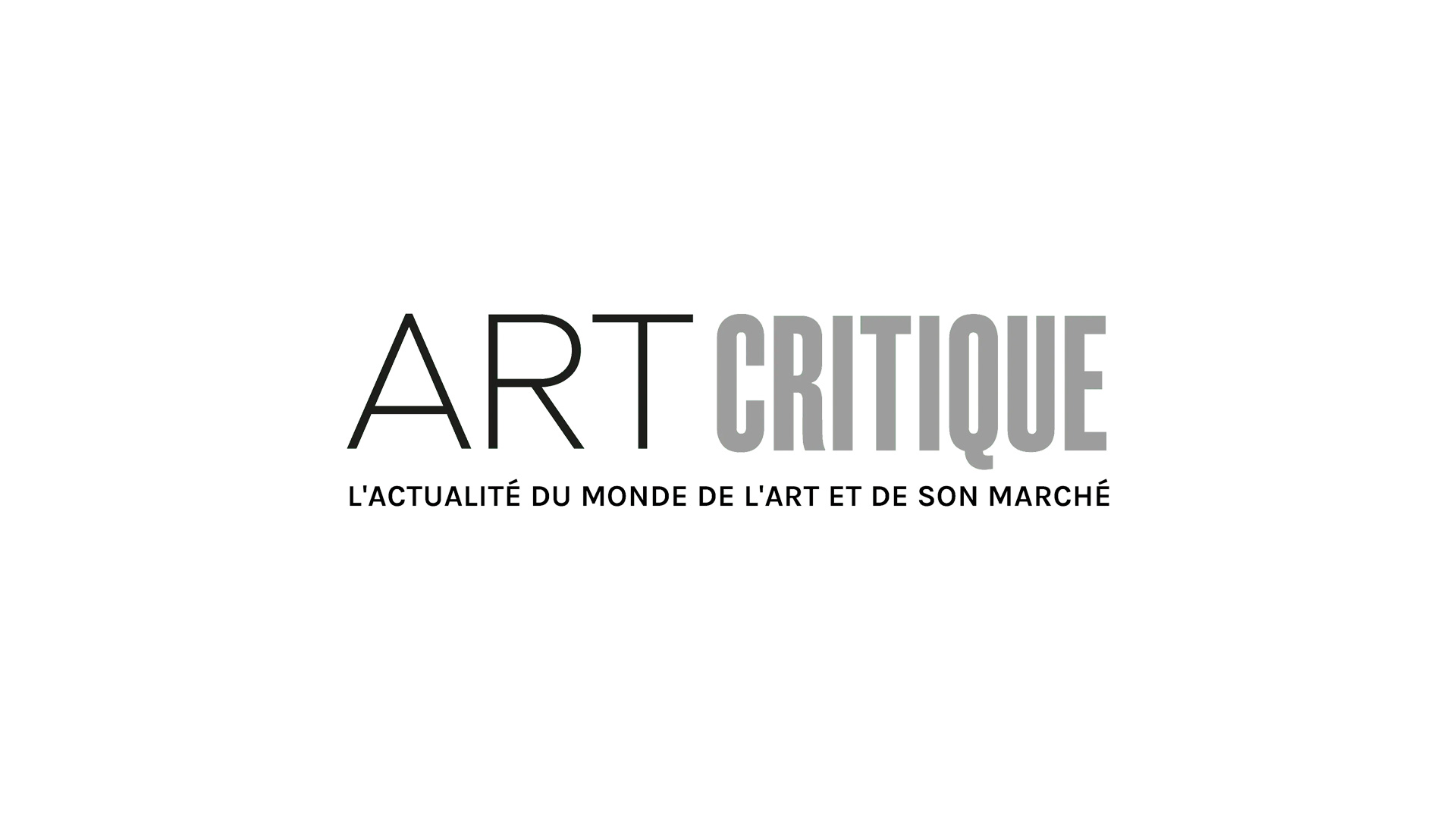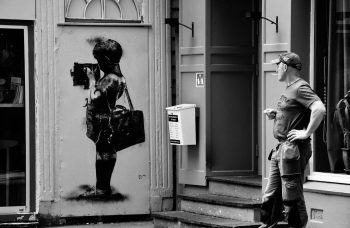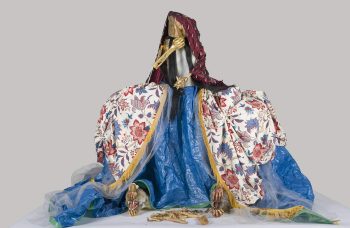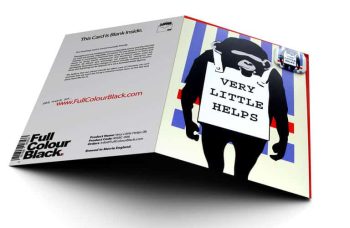On July 17th, a court in Copenhagen sided with Chinese artist and activist Ai Weiwei in a legal dispute against Volkswagen. The court determined that Volkswagen’s Danish distributor Skandinavisk Motor used Weiwei’s sculptural installation Soleil Levant (2017) in an advertisement in a manner that violated the artist’s intellectual property by not obtaining permission from Weiwei to include the installation. With the ruling, Weiwei was awarded 1.75 million Danish krone ($260,000) in compensation for the act.
Now described as ‘an improper exploitation of the artwork for marketing purposes,’ the advertisement ran in October 2017. It featured an orange Volkswagen Polo set against Soleil Levant. The installation by Weiwei was created that same year out of 3,500 lifejackets that were used by migrants to float Lesvos, Greece from their home countries. The installation was created in collaboration with the Kunsthal Charlottenborg to mark World Refugee Day; the work is installed on the side wall of the museum.
Prior to taking the car manufacturer to court, Weiwei reportedly tried to negotiate with Volkswagen for a year before the company used Soleil Levant against the wishes of the artist. Weiwei said Volkswagen ‘only engaged in arrogant gestures to trivialise their guilt and dismiss the matter’ during that time leading to ‘fruitless negotiations.’ In the end, Skandinavisk Motor ran the ad campaign with at least 200,000 people seeing the advertisement.
While some might argue that any press is good press, in this context that very much so was not the case. Weiwei was not only concerned for the misuse of his intellectual property but more so for how the artwork would be received in the advertisement. Weiwei did not want his artwork to be reduced to a mere marketing ploy and was concerned by the association between his work and Volkswagen. The court also felt this way stating that the use of Soleil Levant in such a manner directly went against the message of the artwork.
‘In out globalized era, corporations often operate with impunity, answering only to their shareholders,’ said Weiwei on his Instagram soon after the ruling was announced. Weiwei continued by criticizing Volkswagen and its CEO Herbert Diess for ignoring human rights violations in China in relation to the company’s expansion there. Weiwei added, ‘Volkswagen’s conduct towards my artwork is a small reflection of a global lack of respect for the rights of individuals today.’
Alongside Weiwei, Michael Thouber, director of the Kunsthal Charlottenborg and co-curator of Soleil Levant, was happy to know that the court placed value in Weiwei’s claim. ‘Artists’ copyright has to be protected,’ said Thouber in a statement to artnet News, ‘whether it is in a gallery or in a public space.’ He also noted that Skandinavisk Motor claimed in court that they did not realize that the side of the building contained an artwork, which reportedly made Weiwei laugh aloud during the hearing.
The case stands a victory for one artist who’s artworks were used in a manner unintended by them. While the court sided with Weiwei in this case, there are many other instances when such legal measures aren’t possible for artists whose works are taken advantage of. At least Weiwei’s case now stands as a touchstone for cases to come but also for companies to recognize they can’t simply take without permission.





